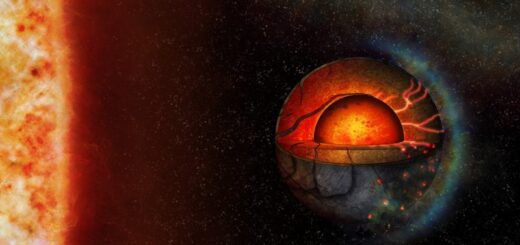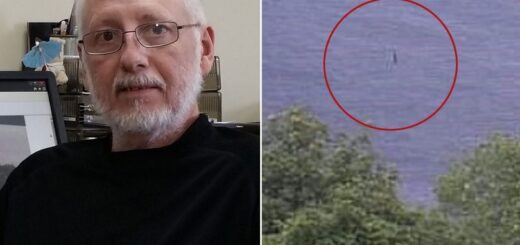Spiderweb of wormholes could solve a black hole paradox 1st proposed by Stephen Hawking
The black hole information paradox was seemingly intractable.

A seemingly intractable black hole paradox first proposed by physicist Stephen Hawking could finally be resolved — by wormholes through space-time.
The “black hole information paradox” refers to the fact that information cannot be destroyed in the universe, and yet when a black hole eventually evaporates, whatever information was gobbled up by this cosmic vacuum cleaner should have long since vanished. The new study proposes that the paradox could be resolved by nature’s ultimate cheat code: wormholes, or passages through space-time.
“A wormhole connects the interior of the black hole and the radiation outside, like a bridge,” Kanato Goto, a theoretical physicist at the RIKEN Interdisciplinary Theoretical and Mathematical Sciences Program in Japan, said in a statement.
Under Goto’s theory, a second surface appears inside the event horizon of a black hole, the boundary beyond which nothing can escape. Threads from a wormhole connect that surface to the outside world, entangling information between the interior of the black hole and the radiation leaks at its edges.
Black hole information paradox
In the 1970s, Hawking discovered that black holes aren’t exactly black, but at first, he didn’t realize the giant problem he had created. Before his discovery, physicists had assumed that black holes were exceedingly simple. Sure, all sorts of complicated stuff fell into them, but the black holes locked all that information away, never to be seen again.
But Hawking found that black holes release radiation, and can eventually evaporate entirely, in a process now known as Hawking radiation But that radiation didn’t carry any information itself. Indeed, it couldn’t; by definition, the event horizon of a black hole prevents information from leaving. So, when a black hole finally evaporates and disappears from the universe, where did all its locked-up information go?
This is the black hole information paradox. One possibility is that information can be destroyed, which seems to violate everything we know about physics. (For instance, if information can be lost, then you can’t reconstruct the past from present events, or predict future events.) Instead, most physicists try to solve the paradox by finding some way — any way — for the information inside the black hole to leak out through the Hawking radiation. That way, when the black hole disappears, the information is still present in the universe.
Either way, describing this process requires new physics.



 Creators of mankind
Creators of mankind Description of “Tall white aliens”
Description of “Tall white aliens” Where they came from?
Where they came from? About hostile civilizations
About hostile civilizations The war for the Earth
The war for the Earth “Tall white aliens” about eternal life
“Tall white aliens” about eternal life Video: “Nordic aliens”
Video: “Nordic aliens” Aliens
Aliens Alien encounters
Alien encounters The aliens base
The aliens base UFO
UFO Technology UFO
Technology UFO Underground civilization
Underground civilization Ancient alien artifacts
Ancient alien artifacts Military and UFO
Military and UFO Mysteries and hypotheses
Mysteries and hypotheses Scientific facts
Scientific facts


















